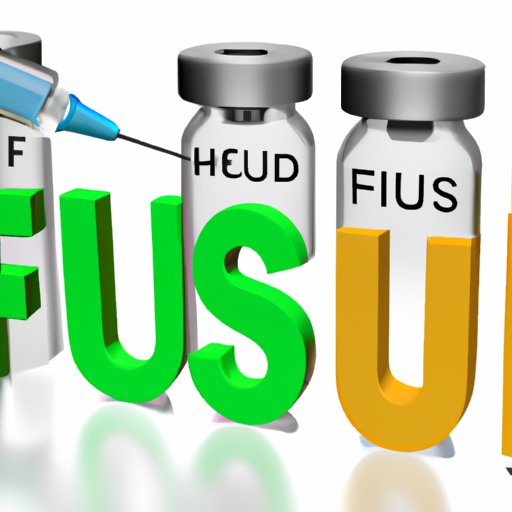
I. Introduction
Every year, millions of people get the flu shot in hopes of avoiding the dreaded influenza virus. However, despite the best efforts of public health officials and healthcare professionals, many still find themselves falling victim to flu-like symptoms. In this article, we’ll explore the science behind flu shot effectiveness and breakthrough cases, as well as the benefits of vaccination, tips for managing symptoms, and navigating the conversation surrounding the importance of getting vaccinated.
II. Fact or Fiction? Debunking the Myth of the Flu Shot Guarantee
One of the most common misconceptions about the flu shot is that it provides 100% protection against the flu. Unfortunately, this is not the case. Vaccine effectiveness can vary each season, as the vaccine is formulated based on educated predictions about which strains of the virus will be most prevalent. Additionally, even in the best-case scenario, the vaccine is only around 60% effective at preventing the flu.
III. Why Getting Vaccinated Is Still the Best Defense Against the Flu (Even If You Still Get Sick)
While the flu shot may not provide complete protection against the flu, it is still recommended as the best defense against the virus. In addition to preventing the flu, vaccination can help reduce the severity of your symptoms and minimize potential complications, such as pneumonia. Additionally, getting vaccinated can help protect more vulnerable populations, such as young children and the elderly, who are at higher risk of serious flu-related complications.
IV. The Science Behind Breakthrough Cases: Understanding Why Some Still Get the Flu After Vaccination
Breakthrough cases occur when someone becomes infected with the flu virus despite being vaccinated. While this may be unsettling, it’s important to understand that breakthrough cases are not uncommon nor do they necessarily mean the vaccine didn’t work. A variety of factors can affect vaccine effectiveness, including the age and health status of the person being vaccinated, and if the virus mutates.
V. Flu Season 101: What You Need to Know About the Flu Shot and Its Effectiveness
Flu season typically lasts from October to May, with peak activity occurring between December and February. Each year, the flu shot is formulated based on predictions about which strains of the virus will be most prevalent. The vaccine is composed of inactivated virus particles and does not cause the flu itself. Effectiveness is measured by comparing vaccinated and unvaccinated populations and can also vary based on the age and health status of the individual being vaccinated.
VI. Don’t Panic: What to Do If You Got the Flu After Being Vaccinated
If you do become sick with the flu, even after being vaccinated, don’t panic. The vaccine can help reduce the severity of symptoms, and many people who get the flu after vaccination will experience a milder case than those who were not vaccinated. In the event that you experience severe symptoms or complications, seek medical attention right away.
VII. From Symptoms to Prevention: Navigating the Flu Shot Conversation
It’s important to have open and honest conversations with your healthcare provider about the flu shot and its benefits. Common questions and concerns may include the risk of side effects, the effectiveness of the vaccine, and whether or not it’s recommended for specific populations, such as pregnant women or those with compromised immune systems. Be prepared to ask questions and seek out accurate information to make informed decisions about getting vaccinated.
VIII. Conclusion
While the flu shot may not offer complete protection against the flu, it is still the best defense we have against the virus. By understanding the science behind vaccine effectiveness and breakthrough cases, as well as the benefits of vaccination beyond just flu prevention, we can take steps to protect ourselves and those around us. If you haven’t already, talk to your healthcare provider about getting vaccinated this flu season.





